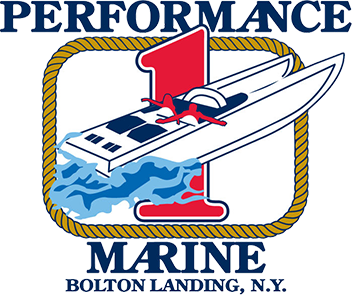Meet the Lake George Park Commissioners: Dr. Dean Cook, Leaning Forward
People from other parts of the country are astounded to learn that Lake George Park Commissioner Dean Cook still draws his family’s drinking water from Lake George.
“In a way, the purity of the water is deceiving; it makes us think everything is ok. Well, everything is not ok,” says Cook.
Cook was appointed to the Lake George Park Commission in 2010. A dentist whose family has lived on Heart Bay for generations, Cook has a long record of environmental advocacy. He was president of the High Peaks Audubon Society and represented the Society on the Adirondack Council; president of the Lake George Land Conservancy; and a board member of the Residents Committee to Protect the Adirondacks, the Lake George Association and the Adirondack Nature Conservancy. He currently serves on the board of Protect the Adirondacks, an organization formed after the Residents Committee and the Association for the Protection of the Adirondacks merged.
Cook’s appointment to the Commission was applauded by The Fund for Lake George and Lake George Waterkeeper Chris Navitsky, who said, “Dean Cook will bring some fresh blood and a new perspective to the Park Commission.”
He’s done both, at times to the consternation of some of his fellow commissioners.
“When I was first asked if I wanted to be on the Lake George Park Commission, I said ‘no,’ having come to regard it as a rather under-achieving organization, largely representing business interests,” said Cook. “But I was told I would not be a lone voice, and that changed my mind.”
Adding their voices to Cook’s are Joe Stanek and John Pettica, who volunteered to serve with him on an Aquatic Invasive Species Ad Hoc Committee.
The three have spearheaded a project to acquire a portable boat decontamination station and have called for mandatory boat inspections and cleanings.
“We have to lock up the lake as soon as possible if we’re to control invasive species. If boats are not clean, drained and dry, we’re open to every invader that comes along,” said Cook.
While the Lake George Park Commission approved a resolution earlier this spring supporting a pilot project to test the boat washing station, Park Commission chairman Bruce Young said the resolution “does not authorize anyone to do anything.”
Moreover, Young emphasized, “There are no regulations in effect that make boat washing mandatory. It’s purely voluntary. For inspections and washing to be mandatory, everyone in the Lake George basin has to get behind it.”
“The feedback I hear is that not every group is ready to go along with that,” said Commissioner Jim Kneeshaw. “The Ad Hoc Committee is a three-man steam roller, pushing a plan I’ve never seen.”
Cook makes no apologies for assuming a more aggressive posture than most of his fellow commissioners.
“We’re the organization appointed to protect this lake. As a commissioner, I’m fighting tooth and nail to protect this lake We’re not here to be popular, we’re here to protect the lake. The Lake George Park Commission has to set the standards, to be a leader and enforce regulations,” he said.
The Commission’s first priority is protecting water quality, said Cook.
“It’s painfully obvious that over half a century, there’s been a decline in water quality. Here in Heart Bay, you can see why. The shoreline looks like Connecticut, with lawns running straight to the lake and pushing all that runoff into the water. We need to re-vegetate the lawns and remove impervious surfaces. That’s where we can all play a part,” Cook said.
Stream corridor regulations could play a decisive role in limiting stormwater runoff, said Cook.
“If the new regulations require approval from Albany, than we should have been in Albany a long time ago,” said Cook. “Recently a group of us went to see Bob Hallman, Governor Cuomo’s Secretary for the Environment, and he had never heard of the Lake George Park Commission. He didn’t know we exist.”
“But we have to be aggressive on more fronts than combating invasives and reducing stormwater runoff,” said Cook. “We have to stop salting the roads. We have to protect these mountainsides. And we have to stop passing out dock variances. Just because you bought a bigger boat doesn’t mean you deserve a bigger dock. We’re being killed by a thousand cuts.”
Cook speaks frequently of his “conservation heroes:” Clarence Petty, Harold Jerry, Arthur Savage, Bob Glennon, Tim Barnett.
“My three years on the Adirondack Council were an education in environmental policy and Adirondack history. These people had been through all the wars. The train ride to New York for meetings was a two hour seminar on the way down and another on the way back,” said Cook.
Cook says those Adirondack advocates have inspired him and shaped the way he sees the purpose of the Lake George Park Commission.
“The only way to protect the lake is to keep fighting the good fight. Use your intellect, your knowledge, your passion. Ours is the crucial generation. If we don’t protect the lake, it will be too late.”
This article is the first in a series of profiles of members of the Lake George Park Commission.






